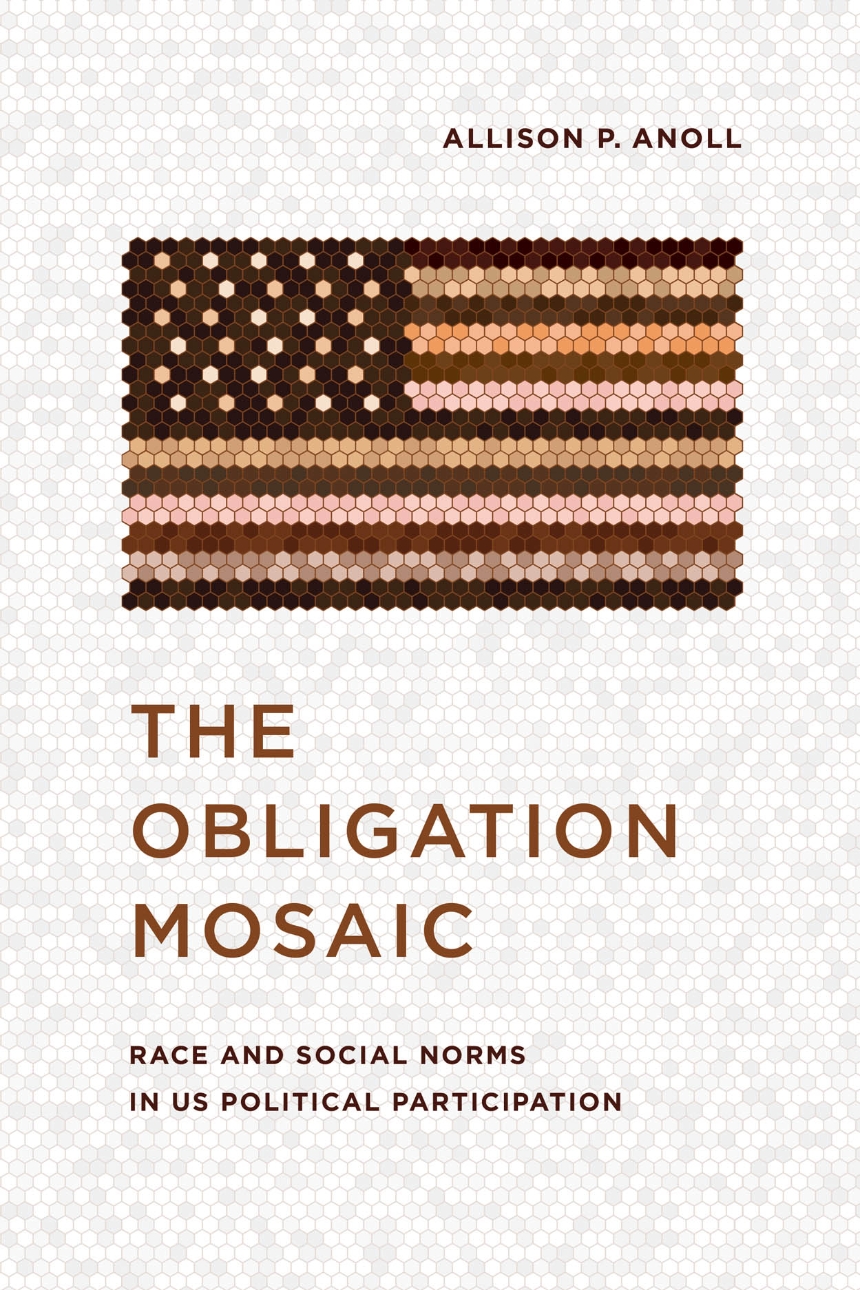The Obligation Mosaic
Race and Social Norms in US Political Participation
9780226812571
9780226812267
9780226812434
The Obligation Mosaic
Race and Social Norms in US Political Participation
Many argue that “civic duty” explains why Americans engage in politics, but what does civic duty mean, and does it mean the same thing across communities? Why are people from marginalized social groups often more likely than their more privileged counterparts to participate in high-cost political activities?
In The Obligation Mosaic, Allison P. Anoll shows that the obligations that bring people into the political world—or encourage them to stay away—vary systematically by race in the United States, with broad consequences for representation. Drawing on a rich mix of interviews, surveys, and experiments with Asian, Black, Latino, and White Americans, the book uncovers two common norms that centrally define concepts of obligation: honoring ancestors and helping those in need. Whether these norms lead different groups to politics depends on distinct racial histories and continued patterns of segregation.
Anoll’s findings not only help to explain patterns of participation but also provide a window into opportunities for change, suggesting how activists and parties might better mobilize marginalized citizens.
In The Obligation Mosaic, Allison P. Anoll shows that the obligations that bring people into the political world—or encourage them to stay away—vary systematically by race in the United States, with broad consequences for representation. Drawing on a rich mix of interviews, surveys, and experiments with Asian, Black, Latino, and White Americans, the book uncovers two common norms that centrally define concepts of obligation: honoring ancestors and helping those in need. Whether these norms lead different groups to politics depends on distinct racial histories and continued patterns of segregation.
Anoll’s findings not only help to explain patterns of participation but also provide a window into opportunities for change, suggesting how activists and parties might better mobilize marginalized citizens.
264 pages | 27 line drawings, 25 tables | 6 x 9 | © 2022
Chicago Studies in American Politics
Political Science: Political Behavior and Public Opinion
Reviews
Table of Contents
Chapter 1. The Value and Meaning of Political Participation
Chapter 2. The Racialized Norms Model
Chapter 3. Which Norms?
Chapter 4. Finding Purpose in the Past
Chapter 5. Taking Care of Those in Need
Chapter 6. Norms and National Turnout
Chapter 7. Norms and High-Cost Participation
Chapter 8. The Present and Future of Participatory Social Norms
Acknowledgments
Appendix A Participatory Social Norms Survey Instrumentation
Appendix B Supplemental Material for Qualitative Interviews
Appendix C Supplemental Empirical Analyses
Notes
References
Index
An online data appendix can be accessed at https://dataverse.harvard.edu/.
Chapter 2. The Racialized Norms Model
Chapter 3. Which Norms?
Chapter 4. Finding Purpose in the Past
Chapter 5. Taking Care of Those in Need
Chapter 6. Norms and National Turnout
Chapter 7. Norms and High-Cost Participation
Chapter 8. The Present and Future of Participatory Social Norms
Acknowledgments
Appendix A Participatory Social Norms Survey Instrumentation
Appendix B Supplemental Material for Qualitative Interviews
Appendix C Supplemental Empirical Analyses
Notes
References
Index
An online data appendix can be accessed at https://dataverse.harvard.edu/.
Awards
International Society of Political Psychology: Juliette and Alexander George Book Award
Won
